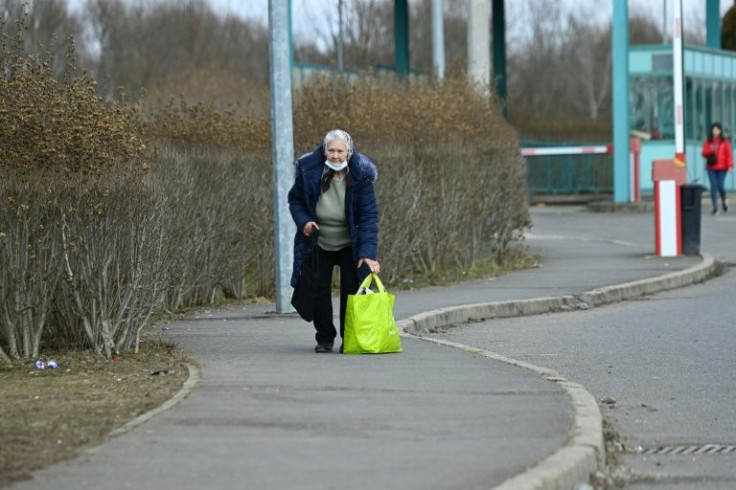Ukrainian Grandma With Dementia Starts Every Morning Learning That Her Country Is At War
KEY POINTS
- The grandmother gets flashbacks of memories from her childhood of WW II bombings
- Her husband hides the house keys from her and reassures her as she tries to evacuate
- Her story reveals the plight of many elderly Ukrainians with the "hidden" disability
A woman revealed that her grandmother in Ukraine, who has dementia, has been living in a “never-ending loop” since Russian forces invaded the country in February.
41-year-old Olga Boichak's grandparents live in western Ukraine, and most mornings in their household have been similar for nearly two months: the grandmother wakes up and switches on the TV to watch news about the war flashing on the screen. The elderly woman starts panicking as she remembers memories from her childhood of bombings during World War II.
As Olga's distraught grandmother starts packing to evacuate, her husband of six decades hides the house keys and tells her that staying put in their home is the safest option they have. However, it doesn't take long for the grandmother to forget her husband's reassurance.
The news about Russian forces bombing her country, much like all her new memories in the last few years, tends to disappear into the fog of dementia.
Her mind would reset by the next morning, and she switches on the TV upon waking up, leading to the same sequence of events repeating.
My grandmother in Ukraine has dementia. Every morning she wakes up, turns on the TV and finds out war has begun. Mortified, she packs her bag and tries to evacuate the house. She’s been in this never-ending loop for 41 days straight. Grandpa’s keeping the keys in a safe place💔
— Olga Boichak 🇺🇦 (@olgarithmic) April 5, 2022
“She’s going through the daily trauma of rediscovering that war has begun, and keeps trying to evacuate,” Dr. Boichak told the New York Times.
Dr. Boichak is a sociologist and lecturer currently living in Sydney. She has been having weekly video chats with her grandparents and her aunt, a health worker who is taking care of the elderly couple.
The story of Dr. Boichak’s grandmother is unfortunately not an isolated one. Many elderly Ukrainians are not just grappling with the need to survive the ongoing war but also bear the weight of living with a “hidden” disability like dementia. These people “can be left behind in receiving humanitarian assistance and protection if those responding do not 'see’ their condition,” reads the Alzheimer's Disease International website.
Another woman, Liza Vovchenko, shared the story of her own 82-year-old grandmother, Rita, who lives in a Russian-occupied town in southern Ukraine and has been showing signs of dementia for the past three years.
Vovchenko said Rita keeps forgetting that her country is at war and tries to go out on her daily walks to the market in the town center, according to PEOPLE. But when her grandson tries to stop her, Rita gets furious as she simply can’t remember why it is dangerous to step out of the house or that the markets have long been shut.
“Her normal routine was impacted, and people like her really need routine in their lives,” Vovchenko told the New York Times.
Vovchenko said she keeps hearing stories of elderly Ukrainians, some weak and disabled, urging the youngsters to flee the country without them.
“To the young people who are able to escape, the older ones would push you to run,” she continued. “They say: ‘I will die here because it’s my land. I want to make sure you leave, and can come back and rebuild this country.’”

© Copyright IBTimes 2025. All rights reserved.






















